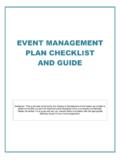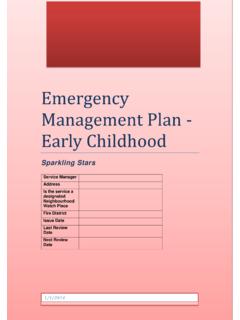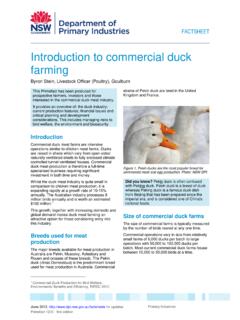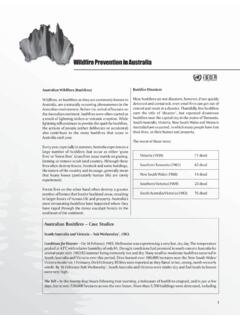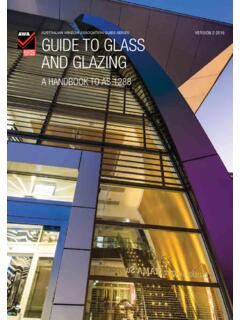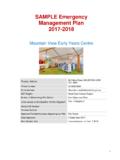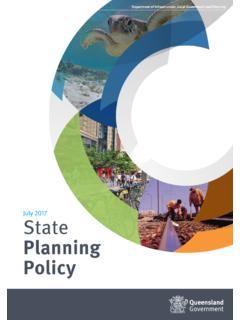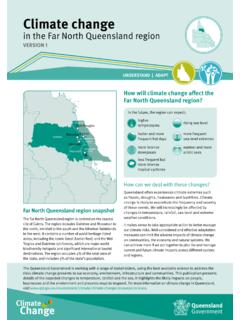Transcription of EVENT MANAGEMENT PLAN CHECKLIST AND GUIDE
1 EVENT MANAGEMENT plan CHECKLIST AND GUIDE Disclaimer: This GUIDE was compiled by the Gascoyne Development Commission as a toolkit to assist community groups with organising and managing community events and festivals. Please remember it is a GUIDE only and you should check information with the appropriate authority as part of your EVENT preparation. TABLE OF CONTENTS INTRODUCTION .. 4 EVENT plan .. 4 1. EVENT DETAILS .. 5 EVENT Place & Time .. 5 Contact During EVENT .. 5 2. ORGANISING COMMITTEE .. 5 Roles and Responsibilities .. 6 3. FINANCIAL PLANNING .. 6 6 Financial Support .. 7 4. INSURANCE .. 8 3. THE VENUE .. 8 Potential Hazards.
2 8 Site plan .. 9 Site plan CHECKLIST .. 9 Contingency plan .. 10 4. TRAFFIC AND PEDESTRIAN MANAGEMENT .. 10 Traffic MANAGEMENT plan .. 10 Road Closures .. 10 Adjoining Properties .. 10 5. INCIDENT MANAGEMENT plan .. 11 EVENT / Incident Control Centre .. 11 Incident MANAGEMENT plan including First Aid Arrangements .. 11 Incident MANAGEMENT Contact Details .. 12 Fire Fighting Equipment .. 12 Lost and Stolen Property / Lost 12 Incident Reports .. 12 6. PUBLIC HEALTH .. 12 Temporary Food Stalls .. 12 Alcohol .. 13 Toilets .. 13 Water .. 14 Shelter .. 14 Waste MANAGEMENT .. 14 Noise .. 14 7. PUBLIC SAFETY .. 15 Security & Crowd Control.
3 15 Place of Public Assembly .. 15 Lighting and Power .. 15 Temporary Structures .. 15 Fireworks and Pyrotechnics .. 16 8. EVENT PROMOTION AND MARKETING .. 16 Ticketing .. 16 Signage .. 17 Health Promotion .. 17 Advertising .. 17 9. USEFUL CONTACT NUMBERS .. 17 10. 17 REFERENCES .. 18 EVENT MANAGEMENT plan Proforma .. 19 ANNEXURE A .. 34 Useful Links .. 34 ANNEXURE B .. 35 Task Scheduling 35 4 | P a g e INTRODUCTION This toolkit is designed for people in the Gascoyne region who currently organise festivals and events. Festivals and events are very important to the Region as they showcase the unique aspects of the Region's culture and promote positive messages to our visitors.
4 They also contribute to local communities by providing opportunities for economic growth and fostering community spirit. Included in this toolkit are practical guides and resources to help plan , promote, and stage a successful festival or EVENT . As well as providing clear guidance on how to go about each stage of the process, there are also links to other useful information and templates that can be adapted to suit an individual EVENT . EVENT plan Planning is the most important part of running a successful EVENT , and this means starting well in advance. The best way to approach planning is to develop a detailed MANAGEMENT plan , which includes a timetable of what needs to be done and when.
5 Crucial elements of the planning for the EVENT , such as fundraising, booking performers and advertising need to happen well in advance of the date of your EVENT so a timeline schedule is essential. Developing an EVENT plan is critical to ensure your events success. The information provided in this document is designed to walk you through each step involved in organising a festival or EVENT , and can be used as a CHECKLIST . The information will hopefully assist you to develop an EVENT plan for your festival or EVENT . Please be mindful that this is a GUIDE only and that there may be additional information or requirements that are not necessarily listed in this document.
6 Please ensure you consult with your local government authority and other relevant agencies in developing your EVENT plan . 5 | P a g e 1. EVENT DETAILS EVENT Place & Time In this section you should provide a general overview of your EVENT and be as specific as possible about the activities you are proposing to conduct at the EVENT . When selecting the dates for your EVENT it is a good idea to check whether there are any other events already planned to avoid clashes in events. The timing of your EVENT is also important to consider. Try not to plan your EVENT during known quite periods when many people are out of town. Consider planning your EVENT during the peak season to increase your target audience and capitalize on the opportunity to promote your area.
7 It is important to provide details of your set up and dismantling period as well as the actual times for your EVENT to assist with the scheduling of works in the area. Contact During EVENT The EVENT Manager is responsible for the overall MANAGEMENT of the EVENT . Their role and responsibility includes organising, resourcing, creative directing, human resource MANAGEMENT , negotiating, financial MANAGEMENT , public representation, troubleshooting and liaison. The EVENT manager must be contactable throughout the EVENT planning, conducting and evaluation processes. 2. ORGANISING COMMITTEE However keen you are, it is highly unlikely that you can organise an EVENT on your own - you need a group.
8 Groups often form around the desire to run a festival or EVENT with the celebration of a theme, art form or sport in mind. This usually starts off being an informal grouping but as soon as the group starts to handle money then a formal statement of roles and responsibilities and decision-making becomes necessary. People volunteer for committee work for a wide variety of reasons but primarily they become involved with an organisation or an EVENT and want to do something worthwhile towards its future success. Managing committees effectively means recognising why people became involved, it requires a combination of organisational skills and an understanding of the members.
9 Leaving everyone to do what they like doing might feel appropriate when working with volunteers, but it is not necessarily the way to ensure the group is run efficiently. You need to explore the skills of the people on the committee and match them to the jobs which need doing within the group. Remember that the committee members need to get something out of their role in the committee too, whether it is an increased sense of ownership and belonging to the organisation, social networking or new skills. 6 | P a g e Roles and Responsibilities However your team is set up, you should allocate clear roles to each individual within the team, so everyone knows what they are doing and what is expected of them.
10 Aim to choose committee members with a range of expertise, interests, skills and experience to share the work. Essential roles for an EVENT committee are: EVENT Manager Treasurer Other roles such as Promotions and Secretary General members with various responsibilities on the ground The EVENT Manager is the one essential position for any EVENT committee organizing an EVENT . The EVENT Manager is responsible for: the smooth running and coordination of the EVENT . the inclusive and welcoming nature of the EVENT for all. ensuring that the EVENT complies with all relevant Federal and State laws and local government policies and regulations.
